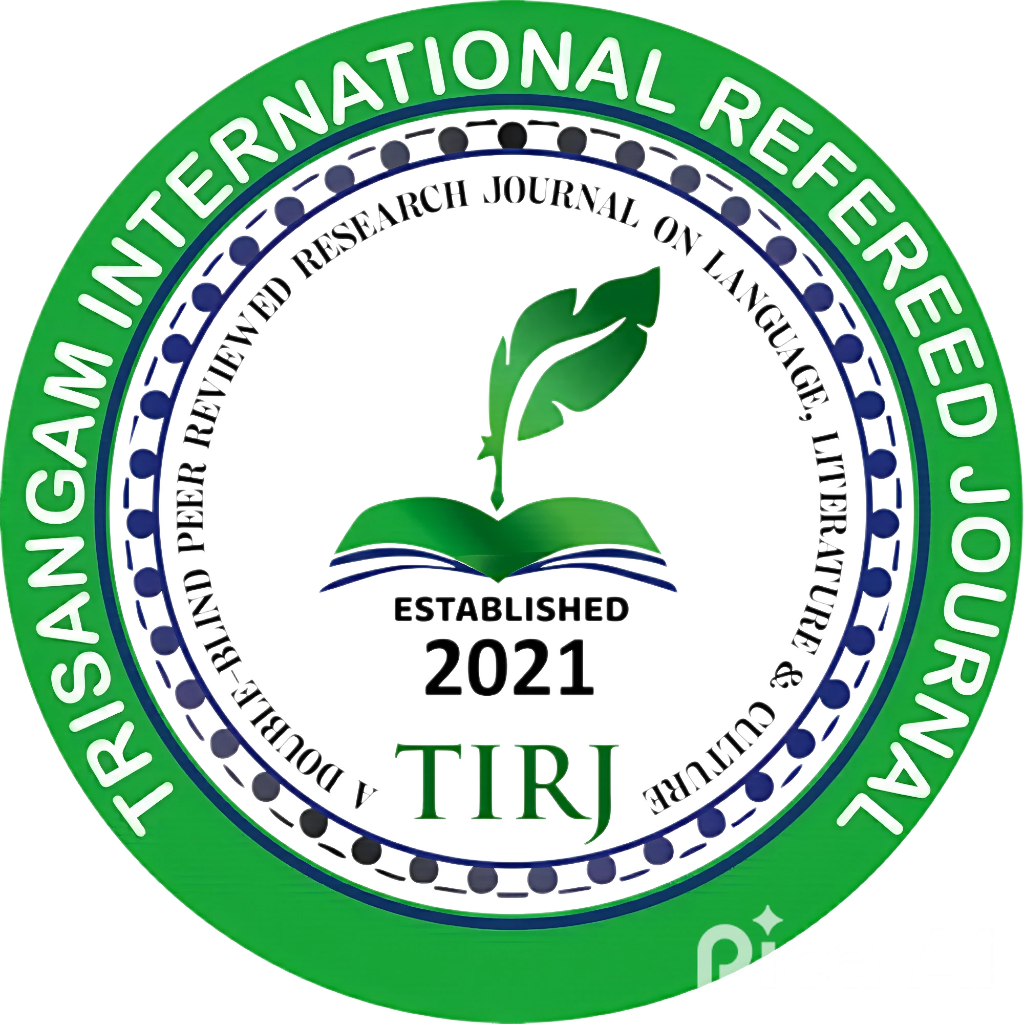Living-succession of indigenous community Munda through profound attachment with their primitive and domestic culture/ স্ব-অয়নস্যূত কুল-সংস্থিতির পরিপোষণায় আদিবাসী মুণ্ডার চারণ-চর্য্যা
Keywords:
- Sutam-Daram,
- Dehuri,
- Saking,
- Tukui Lutur,
- Arradi,
- Herepuna,
- Saharai Banga
Abstract
From distant past human generation got shape of many civilizations through evolution arising out of mode and status of living. If history of any ‘race’ is followd with an eye to its inception, the sight will be bound to the primitive stage. The rational feelings of human being created certain beliefs in mind which ultimately got the from of customs. Such customary trends introduced many events in their livelyhood and performance of those events are assigned as specific characteristics of the particular race. Even at the advent of modern civilization ‘race’ or ‘tribe’ of certain group of people are carrying such customary beliefs in them and leading their livelihood in distinctive manner. Those race or tribe are termed as ‘Adibasi’ which is a Sanskrit word constituted by two words ie ‘adi’ means origin and ‘basi’ means inhabitants. ‘Munda’ is one of such race of people and their certain features are illustrated in this context. Generation after generation the people of Munda community have resolute faith about their origin and are habituated to observe many customary occasions. They are in good faith that in ancient time, ‘Singabonga’ the deity of sun, forbided ‘Tot Harham’ and ‘Tot Buri’ to eat the root of a particuller tree. But they eat the sweet-root disobeying Singabonga. As a result they lost the good sense and enjoyed their conjugate life. They had three sons whose names were ‘Munda’; ‘Naka’ and ‘Rora’. The tribe ‘Munda’ has been emanated through successive heridities of the eldest son Munda. Such primitive affair happened at the place ‘Ajam Farh’. The peole of Munda community speaks in a language known as ‘Mundari’ which belongs to ‘Austro Asiatic’ language group. They live in associative manner all throughout India in different places eg Chota Nagpur, Jharkhand, Orissa, Madhya Pradesh, West Bengal, Assam, Tripura, Nepal and Bangladesh. In West Bengal Munda community is found to live mainly in the district of Jalpaiguri, West Midnapure, North 24 Parganas, Purulia and Jhargram. People of Munda community living in Jhargram District were the dwellers of Chota Nagpur before migration.
Downloads
References
১. মুখোপাধ্যায়, দেবীপ্রসাদ (সঙ্কলয়িতা), দীপরক্ষী, ৫ম খণ্ড, প্রথম প্রকাশ-১লা আষাঢ়, ১৪০২, সৎসঙ্গ পাবলিশিং হাউস, সৎসঙ্গ, দেওঘর, ঝাড়খণ্ড, পৃ. ২৬২
২. দাস, প্রফুল্লকুমার (সঙ্কলয়িতা), আলোচনা-প্রসঙ্গে, দ্বাবিংশ খণ্ড, প্রথম সংস্করণ-অগ্রহায়ণ, ১৪০৬, সৎসঙ্গ পাবলিশিং হাউস, সৎসঙ্গ, দেওঘর, ঝাড়খণ্ড, পৃ. ১৬৮
৩. মিত্র, অমলেন্দু, রাঢ়ের সংস্কৃতি ও ধর্মঠাকুর, ফার্মা কে এল মুখোপাধ্যায়, কলকাতা, প্রথম সংস্করণ-১৯৭২, পৃ. ২৬
৪. দীপরক্ষী, ৩য় খণ্ড, প্রথম প্রকাশ-১লা বৈশাখ, ১৩৯৯, পৃ. ৩৩
৫. আলোচনা-প্রসঙ্গে, ষষ্ঠ খণ্ড, প্রথম সংস্করণ-বৈশাখ, ১৩৬৮, পৃ. ১৮৮
৬. দীপরক্ষী, ৫ম খণ্ড, পৃ. ১৫৯
৭. আলোচনা-প্রসঙ্গে, ১ম খণ্ড, প্রথম সংস্করণ-বৈশাখ, ১৩৬৫, পৃ. ২৯
৮. তদেব, ৩য় খণ্ড, প্রথম সংস্করণ-আশ্বিন, ১৩৬৫, পৃ. ২১৮
৯. দীপরক্ষী, ৩য় খণ্ড, পৃষ্ঠা-২১৩
১০. দীপরক্ষী, ৬য় খণ্ড, প্রথম সংস্করণ - এপ্রিল, ২০০২, পৃ. ১৪০
১১. আলোচনা-প্রসঙ্গে, দ্বাবিংশ খণ্ড, পৃ.৩৭
১২. তদেব, একবিংশ খণ্ড, প্রথম প্রকাশ-অগ্রহায়ণ, ১৪০৬, পৃ. ২১
১৩. তদেব, একাদশ খণ্ড, প্রথম প্রকাশ-১লা বৈশাখ, ১৩৭৯, পৃ. ১২৭
১৪. দীপরক্ষী, ৫ম খণ্ড, পৃ. ১০৪
১৫. আলোচনা-প্রসঙ্গে, একবিংশ খণ্ড, পৃ. ২৫২
১৬. তদেব, একবিংশ খণ্ড, পৃ. ২৫৫
১৭. মুখোপাধ্যায়, সুব্রত, জঙ্গলমহলের লোকসংস্কৃতি, ‘ঋভাষ’ চতুর্থ সংখ্যা, শ্রাবণ ১৪২২, পৃ. ৩-৫






